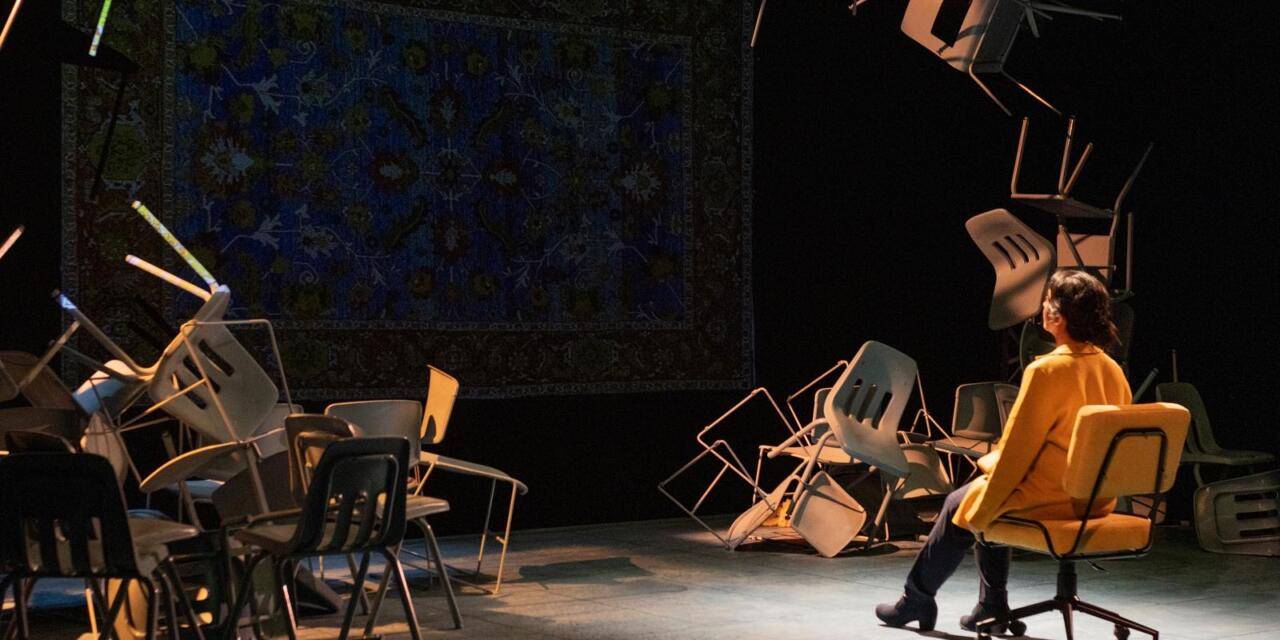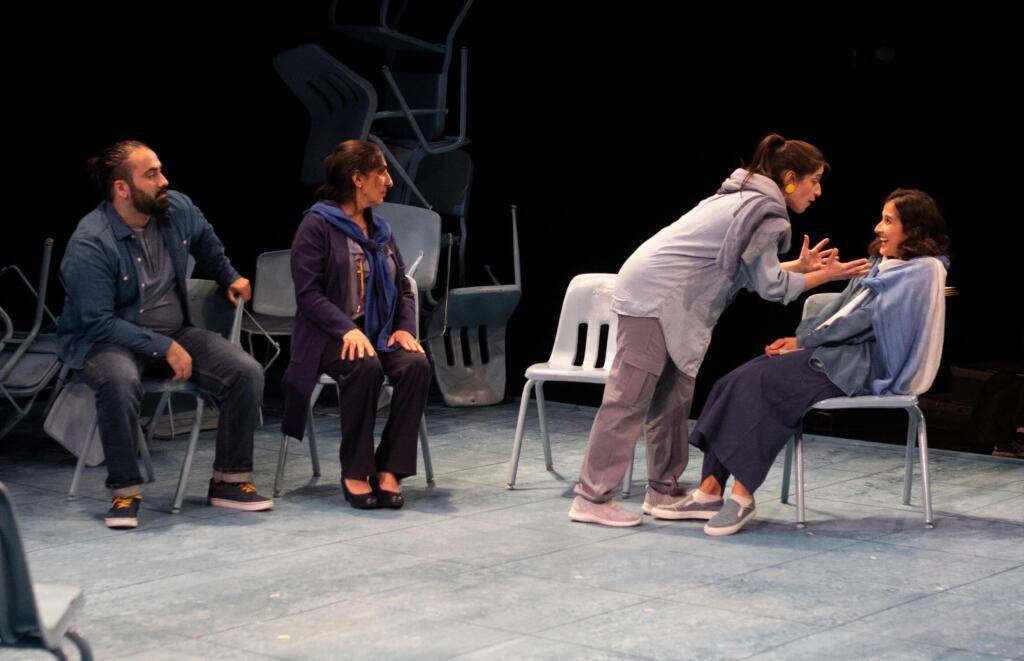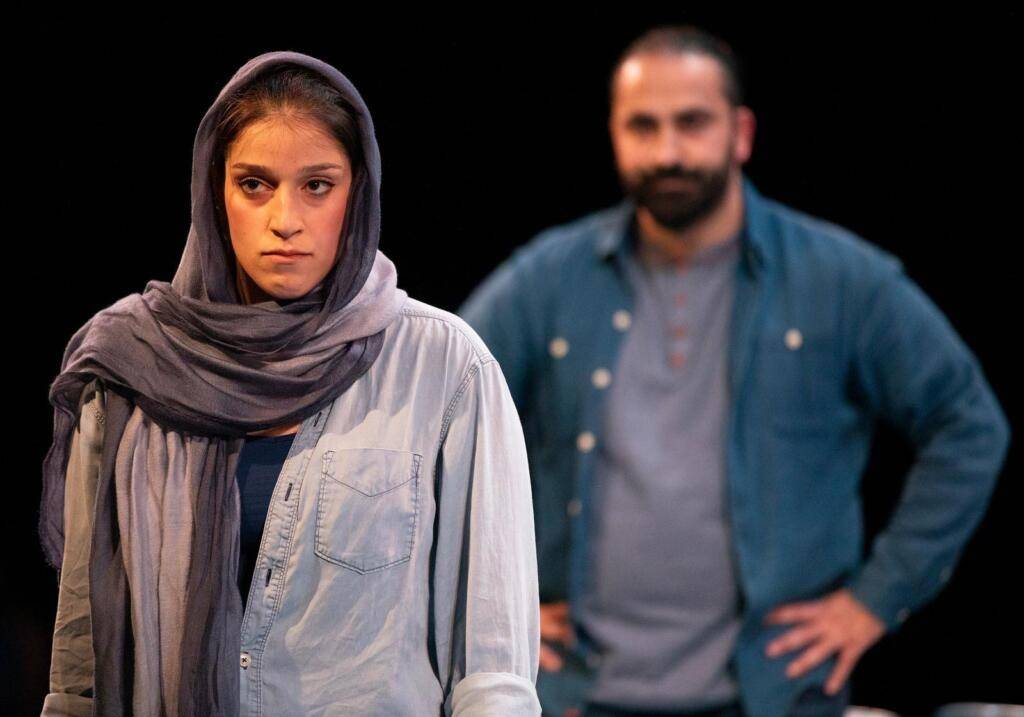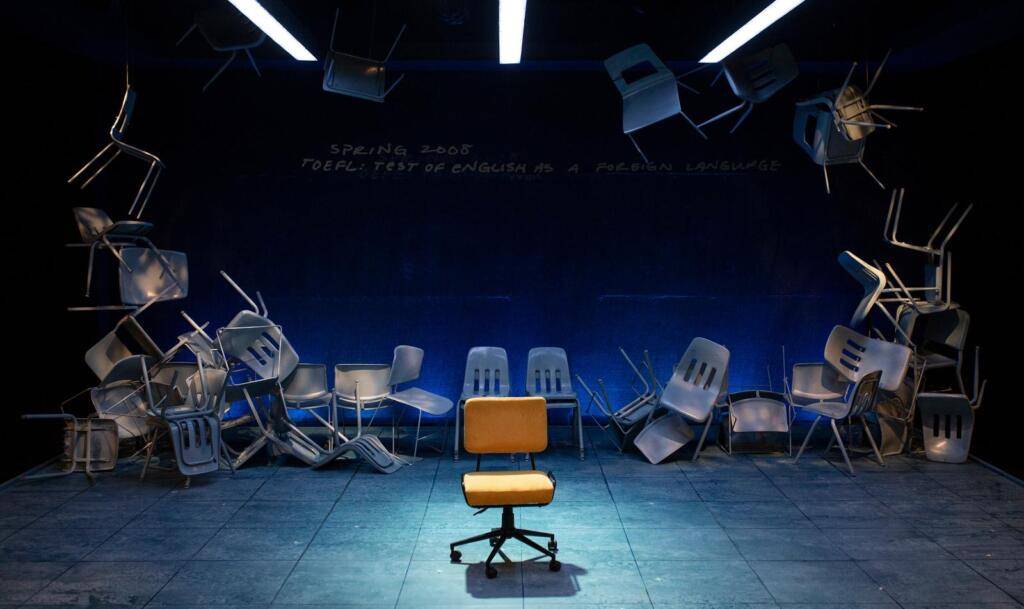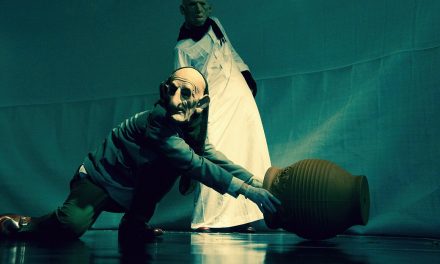Do you speak any languages besides your mother tongue, especially as an adult learner? How do you identify yourself while speaking those languages? Let’s consider English.
English, a play by Sanaz Toossi, explores how individuals trace their roots through layers of languages other than their mother tongue. The narrative follows four Iranian adults from Karaj, a city near Tehran in Iran, who enroll in a TOEFL (Test of English as a Foreign Language) course to prepare for the test while planning to leave Iran for personal reasons. Although in my opinion, choosing TOEFL for this play is not very convincing. TOEFL is primarily required for academic purposes in many countries, so Toossi’s choice doesn’t align well with some of the characters’ objectives in the play. They could be portrayed in an English class without the need for a TOEFL setting.
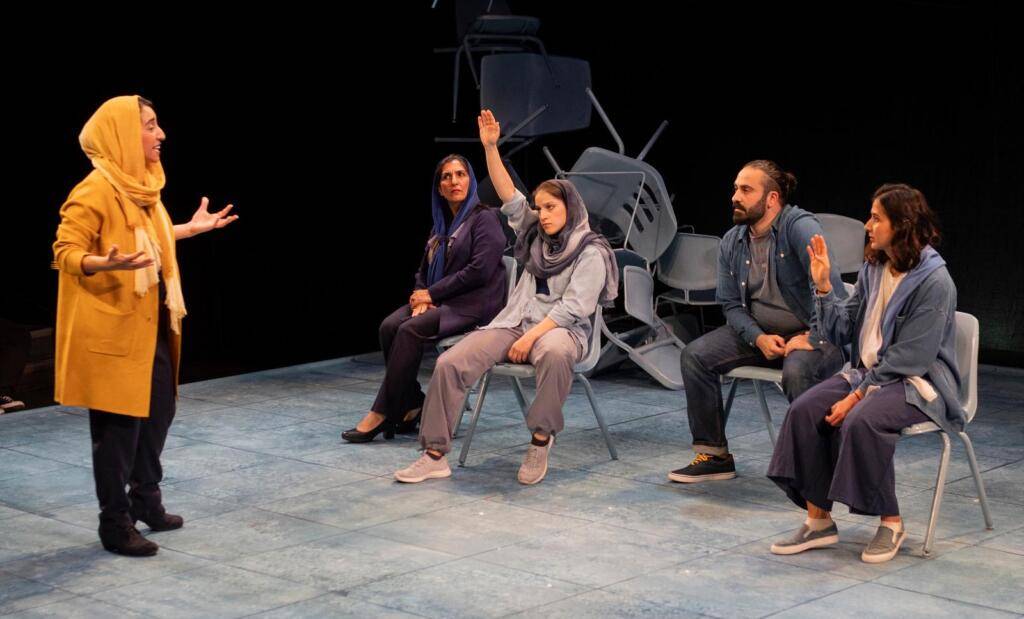
English by Sanaz Toosi, Directed by Naghmeh Samini, Photo by John McLellan. From left to right: Marjan (Vahishta Vafadari), Roya (Janet Hayatshahi), Elham (Shereen Khatibloo), Omid (Emon Elboudwarej), Goli (Newsha Farahani)
English is a joint production by ArtsWest Theatre and Seda, an Iranian Theatre Ensemble, directed by Naghmeh Samini in Seattle, performed in April. Samini effectively strengthened the play with her directing choices, stage design, and casting.
In the classroom, teacher Marjan (Vahishta Vafadari) sets the rule of speaking only in English. Despite this rule, Marjan enthusiastically engages students in teaching methods and games such as show-and-tell, role-playing, and ball games to create an interactive learning environment. The actors also follow the ‘English Only’ convention, using a very authentic Farsi accent to signify speaking in learned English and a standard normal English accent signifying their mother tongue, Farsi.
Among the students, Goli (Newsha Farahani) is the most dedicated, staying until the end of the semester. Elham (Shereen Khatibloo), known for her strong accent, faces challenges with pronunciation and the perception of native speakers towards diverse English accents. She struggles with self-confidence, calling her accent a “war crime”. Due to fear of judgment by others, Elham conceals that she has attempted and failed the TOEFL multiple times.
Roya (Janet Hayatshahi), the eldest student, endeavors to learn English to move to Canada and be able to communicate with her granddaughter in English. Nader, her son in Canada, prefers that his mother visit rather than live with them. That makes Roya understand the distinction between ‘live’ and ‘visit’. This realization becomes a bitter reality discouraging her from continuing her English classes.
Omid (Emon Elboudwarej), the sole male student with exceptional language skills, earns admiration and envy from classmates. Although Omid, in a private conversation with Marjan, confesses that he is an American citizen and was grown up in the US until he was 13 years old. This matter becomes a big surprise for others when Omid finally decides to confess to being an American citizen.
Marjan’s character is further explored through her past experiences in Manchester, where she lived for almost a decade and was known as “Mary,” mirroring her intertwined cultural identities. Despite Marjan sharing a few stories of her past living in Manchester and her relation to the English language, ultimately, the play leaves some essential questions about her character’s development unanswered. For instance, the reason behind Marjan’s return to Iran after living in Manchester doesn’t get resolved. In another example, building up intimacy between Marjan and Omid is touched throughout the play, therefore it creates some expectation for the audience about what that relation exactly is about. Subsequently later in the play, when Goli announces Omid’s engagement with someone, that leads Marjan to decide to excuse Omid from continuing the class, telling him that his level is higher than other students.
However, Naghmeh Samini and her team had creative choices in the production of “English”, using stage design symbolizing the characters’ struggles. Numerous chairs ascend to the classroom ceiling, with some floating in the air, representing the chaos and difficulty in achieving acceptance as an individual through the English language.
The lighting design featuring the color blue, enhances a cold environment. While the actors display dynamism and evoke laughter from the audience, the light design creates a sense of insecurity, floatiness, and uncertainty.
Incorporating invisible objects, such as a blackboard, a ball for playing, and a boombox, enhances the audience’s imagination. The actors, while writing on the invisible board, stand at the front of the stage facing the audience, with the content simultaneously displayed on a background screen, or the invisible ball used by the characters in the classroom to practice their English vocabulary. The director’s creative approaches captivate the audience’s imagination and make the actions on stage dynamic and engaging.
English, presented in any English-speaking country, offers valuable insights for native and non-native English speakers by promoting understanding and appreciation of diverse accents and language challenges. The use of humor and thought-provoking themes in this play has the potential to make a positive contribution to society and enhance the overall theatrical experience.
This post was written by the author in their personal capacity.The opinions expressed in this article are the author’s own and do not reflect the view of The Theatre Times, their staff or collaborators.
This post was written by Azadeh Kangarani.
The views expressed here belong to the author and do not necessarily reflect our views and opinions.

